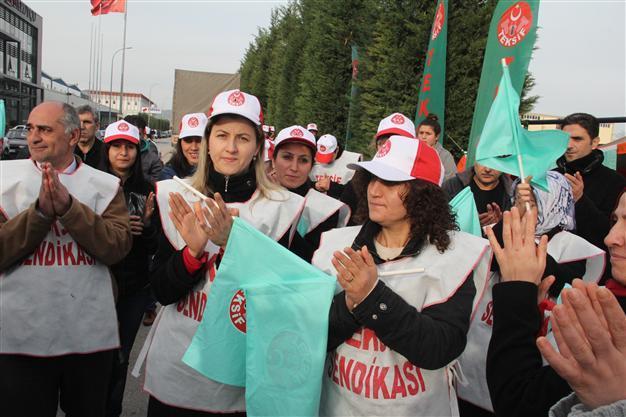Unionization in Turkey still below 10 percent
ANKARA

CİHAN Photo
The number of unionized workers in Turkey recovered slightly from historical lows in June 2013, but the numbers remain below desired levels, according to newly released official data.Around 1.096 million of 11.6 million registered Turkish workers are members of a union in their sector, Labor and Social Security Minister Faruk Çelik said yesterday in a written statement.
Although the data indicates an improvement from 1.032 million unionized workers announced in June 2013, the unionization rate in the country is still below 10 percent. An even smaller number of workers can actually engage in collective bargaining because they do not constitute enough employees in any given workplace.
As of January 2014, only 47 unions in the country have passed the membership threshold required for collective bargaining, yesterday’s data also showed.
Apart from one independent union, all remaining unions are members of one of Turkey’s three largest confederations: the Confederation of Turkish Real Trade Unions (Hak-İş), the Confederation of Progressive Trade Unions (DİSK) and the Confederation of Turkish Trade Unions (Türk-İş).
Since a new regulation came into effect in 2012, the measurement of membership percentages has been conducted by the Social Security Institution (SGK) instead of via data provided by unions. At the same time, the threshold for collective bargaining was lowered from 10 percent, a level that was greatly criticized level by the United Nations’ International Labor Organization (ILO), to 1 percent.
Previously, in order for unions to be able to qualify for collective bargaining, imaginary numbers were used, Çelik said, claiming that if real numbers had been used, only a handful of unions could have qualified.
“Unions are not the only reason for it. Everybody knows about it,” he said.
















